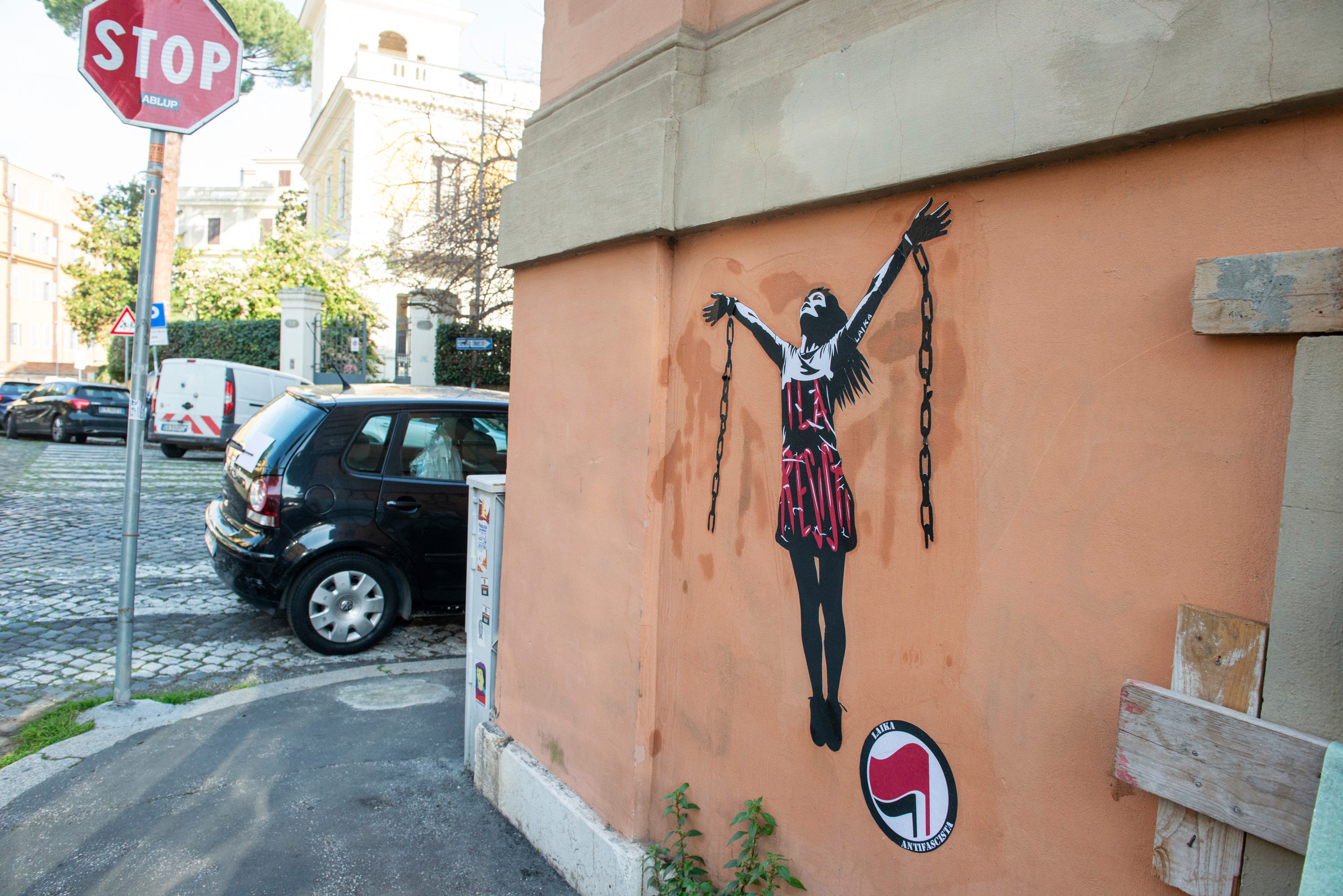Italy ups protest after images of antifascist activist on trial in Hungary show her shackled
Italian authorities have ramped up protests over the treatment of an Italian antifascist being held in a Hungarian jail after images of her chained and shackled at a Budapest court hearing this week sparked outrage in the Mediterranean country

Italian authorities ramped up protests Wednesday over the treatment of an Italian antifascist activist being held in a Hungarian jail after images of her chained and shackled at a Budapest court hearing this week sparked outrage in the Mediterranean country.
Police arrested Ilaria Salis in the Hungarian capital, Budapest, last year after she was suspected of involvement in assaults against participants in Hungary’s Day of Honor commemoration. The event takes place on Feb.11 each year, with far-right activists marking the failed attempt by Nazi and allied Hungarian soldiers to break out of Budapest during the Red Army’s siege of the city in 1945.
Hungarian prosecutors have requested 11 years in prison if Salis is convicted.
Italian Premier Giorgia Meloni spoke about Salis' detention with Hungarian Prime Minister Viktor Orbán on Wednesday, the Hungarian leader's press chief Bertalan Havasi told local news site telex.hu.
Earlier in the week, the Italian Foreign Ministry summoned the Hungarian deputy ambassador to formally protest, after Salis appeared in court with her wrists and ankles shackled, and chains limiting her movement.
In a statement, the ministry recalled European and international law which calls for the need to respect the dignity of prisoners “including the way in which defendants are transferred to court and the guarantees of a fair trial.”
Specifically, the foreign ministry requested alternatives to pre-trial detention, such as house arrest, and called for the indictment to be translated into Italian and for Salis' attorneys to have access to a video of the alleged incidents so she can mount a defense.
The case, however, is delicate for the far-right-led government of Meloni, who has forged friendly ties with Orban.
But Salis' fate has resonated with ordinary Italians and in the media. On Wednesday, street artist Laika unveiled his latest work on a wall near Hungary's embassy in Rome: an image of a woman hanging Christ-like in chains with the words “Ila Resist” written on her dress.
Senate President Ignazio La Russa, who is a member of Meloni's Brothers of Italy party, said that Italian law “prohibits inmates from being exhibited with handcuffs and in conditions of humiliation, whereas this isn’t the case in Hungary.”
In comments to RAI, La Russa called on the government to intervene further, given the need “to not humiliate the inmate and respect the dignity of the person even when detained for serious crimes.”
Even before this week’s courtroom images made front pages in Italian newspapers, Salis’ case and her prison conditions had been raised at the European Parliament by left-leaning lawmakers. They cited news reports that she was being bound by the neck in a cell with mice and roaches.
“The state of Hungarian prisons has been documented and criticized by the European Court of Human Rights and the Council of Europe’s Committee for the Prevention of Torture,” noted the request for EU intervention by Italian lawmakers from the Socialists & Democrats alliance.
Subscribe to Independent Premium to bookmark this article
Want to bookmark your favourite articles and stories to read or reference later? Start your Independent Premium subscription today.
